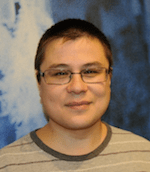
It is a great honor for me to participate and present at the Forum where there are gathered prominent experts in international development and development of Indigenous peoples, as well as professors at the University of Tromsø and my colleagues, students of the Master of Indigenous Studies program
During our lectures here at the university, I have been met with astonishing discoveries. The issues I thought about many times during my work as an activist in the Indigenous movement in Russia are similar to others.
Many times I asked by myself: Why is it that hundreds of different researchers and experts come to our communities asking thousands of questions about our lives, then make their research findings and expertise available about the lives of Indigenous populations, but the situation is not improved? Why are there so many conferences and workshops, but the situation with Indigenous peoples’ rights is still so difficult? How do all those Conventions and Declarations and other international laws work if they do not make the lives, like fishing and hunting rights, of Indigenous peoples easier? And now I start to understand; I do not understand the answers but I see the direction.
The everyday lives of Indigenous peoples around the world are very difficult. They continue to remain some of the most vulnerable populations. And many indicators of economic development, the participation of decision- making, land use, and tenure, etc., show us that the living conditions of Indigenous peoples are catastrophically declining in many countries. In all countries, one of the main problems for Indigenous peoples is the pressures of businesses, and most of all, extracting companies on Indigenous territories. Businesses using the gaps in legislation, corruption, money power grabs, and polluting the lands, displace the Indigenous peoples from their lands and traditional areas.
Click to access forum_2012_rapport_web.pdf
